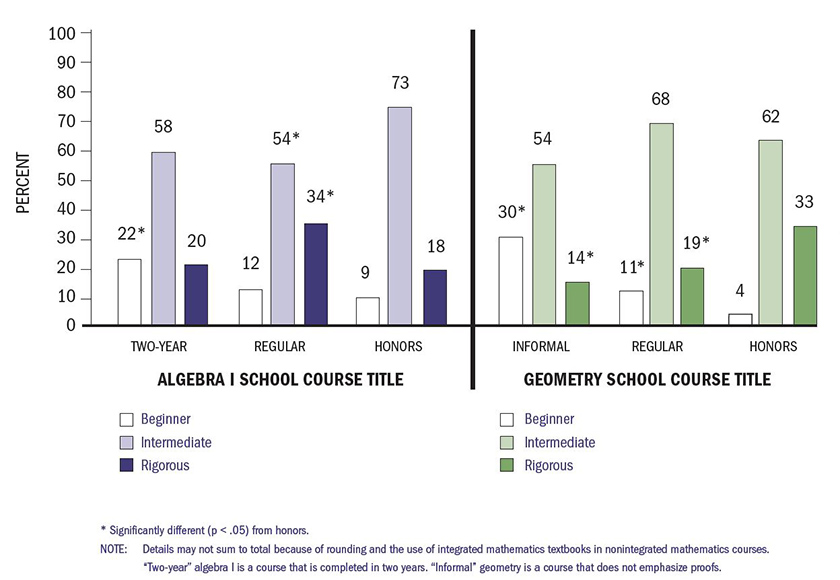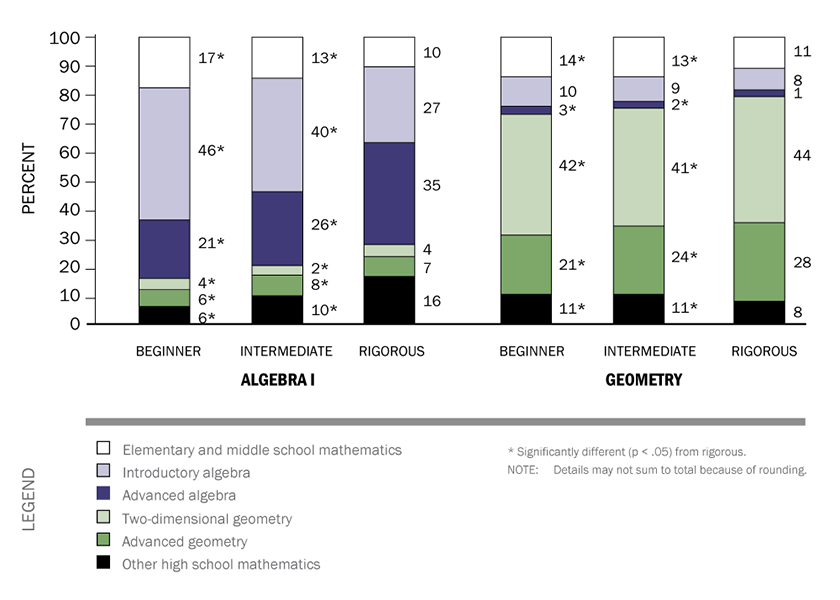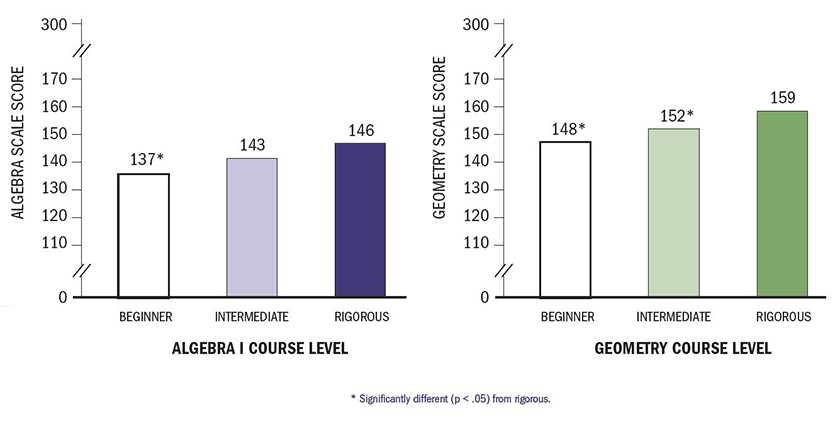The Truth About Honors Courses

How many “My child is an honor student” bumper stickers do you notice every day? A 2013 NAEP study investigated how well high school mathematics course content matched with course titles and descriptions. The study may prompt you to ask, “How many honors students are
really getting an honors-level education?”
In 2013, NAEP released
Algebra I and Geometry: Results from the 2005 High School Transcript Mathematics Curriculum Study. It explored textbooks and course descriptions for algebra I and geometry to see how well course content and course labels matched. The findings were quite startling. According to Acting Commissioner Peggy Carr, “Course labels did not always match what was being taught in the classroom--you could have courses with the same title, and the students are being taught very different content.”
Here are some other things we learned that will make parents take a closer look at their children’s courses
1. Honors isn't always rigorous.
The study found that school course titles often overstated the challenge and rigor of the course content. For example, only 18% of graduates who took an algebra I course labeled “honors” received a rigorous-level curriculum. Similarly, only 33% of graduates enrolled in an “honors” geometry course were exposed to a rigorous-level curriculum.

2. Rigorous courses focus at least 10% of time on less challenging material
At least 10% of high school algebra I and geometry class time focused on elementary and middle school mathematics regardless of its NCES-defined course level. Nonetheless, rigorous algebra I and geometry courses dedicated higher percentages of the course content to advanced topics than beginner and intermediate courses.
 3. On average, students taking "rigorous" math courses score higher on NAEP than students who take "beginner" or "intermediate" courses.
3. On average, students taking "rigorous" math courses score higher on NAEP than students who take "beginner" or "intermediate" courses.
On the 2005 NAEP mathematics assessment, high school graduates who took rigorous-level algebra I and geometry scored higher in algebra and geometry than students who took beginner- and intermediate-level courses.
 Policymakers and leaders in education have emphasized the importance of advanced coursetaking for students’ college and career readiness. This study, however, demonstrates that mathematics classes labeled as advanced aren’t always as rigorous as they claim to be.
Policymakers and leaders in education have emphasized the importance of advanced coursetaking for students’ college and career readiness. This study, however, demonstrates that mathematics classes labeled as advanced aren’t always as rigorous as they claim to be.
We asked parents and students for their reactions to the findings. Hear their thoughts in the video below, and participate in the conversation by adding your comments.
Share This Post:
